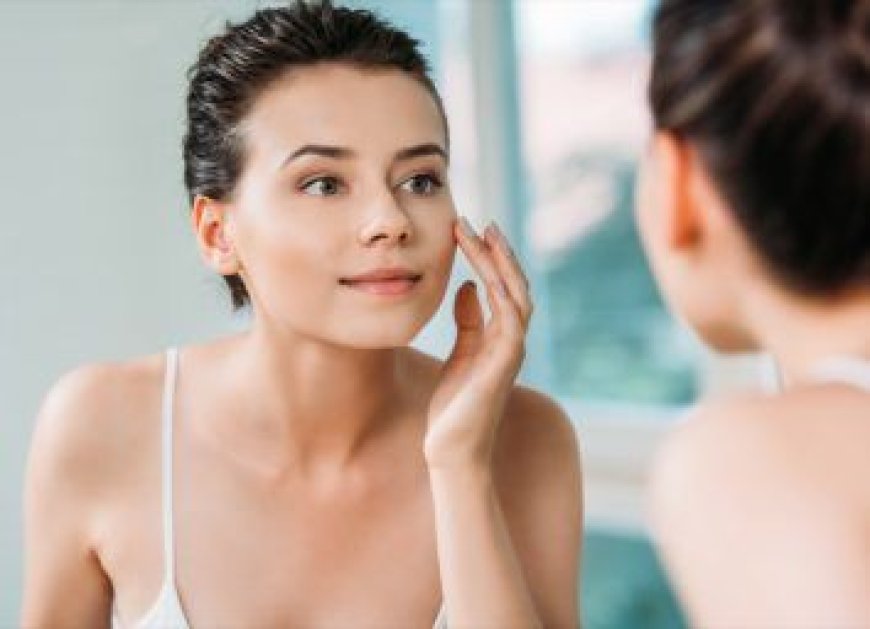How to Treat Acne-Prone Skin Naturally and Effectively
Acne is more than just a cosmetic issue — it can have a serious impact on self-esteem, mental health, and quality of life.

Acne is more than just a cosmetic issue it can have a serious impact on self-esteem, mental health, and quality of life. Whether you're experiencing mild breakouts or deep, painful cysts, the good news is that there are many ways to treat acne-prone skin. While some cases respond well to natural remedies, others require more advanced solutions like isotretinoin 40 mg, a powerful prescription medication.
In this guide, well explore the best natural and clinical approaches to managing acne effectively, helping you build a skincare routine that supports long-term skin health.
Understanding Acne: What Causes It?
Acne occurs when hair follicles become clogged with oil (sebum), dead skin cells, and bacteria. This leads to the development of pimples, whiteheads, blackheads, and sometimes cystic lesions.
Main Causes:
-
Excess sebum production
-
Hormonal fluctuations (especially during puberty, menstrual cycles, and pregnancy)
-
Bacteria (especially Cutibacterium acnes)
-
Inflammation
-
Poor diet or high glycemic foods
-
Use of comedogenic skincare or makeup products
Understanding the root causes of your acne is the first step to choosing the right treatment.
Natural Ways to Treat Acne-Prone Skin
Natural remedies are ideal for mild to moderate acne or as a supportive part of a broader skincare regimen. Heres what works:
1. Cleanse Gently but Regularly
Over-cleansing or using harsh products can strip your skin of natural oils and trigger more breakouts.
-
Use a sulfate-free, pH-balanced cleanser
-
Wash your face twice a day, and after sweating
-
Avoid scrubbing or using abrasive exfoliants
2. Use Non-Comedogenic Skincare Products
Choose products labeled non-comedogenic, oil-free, or wont clog pores.
-
Moisturizers with hyaluronic acid or glycerin
-
Sunscreens with zinc oxide or titanium dioxide
-
Lightweight serums with niacinamide or green tea extract
3. Apply Natural Spot Treatments
Certain natural ingredients have antibacterial and anti-inflammatory properties that can help reduce acne lesions.
-
Tea tree oil (use diluted): Known for antimicrobial effects
-
Aloe vera gel: Soothes redness and inflammation
-
Honey (especially manuka): Naturally antibacterial and moisturizing
4. Maintain a Skin-Friendly Diet
Your diet can affect your skins health and inflammation levels.
-
Limit high glycemic index foods (white bread, soda, sugar)
-
Eat more omega-3-rich foods like salmon, chia seeds, and walnuts
-
Include zinc, vitamin A, and probiotics in your meals
5. Manage Stress
Stress triggers hormonal changes that can worsen acne.
-
Practice yoga, meditation, or deep breathing
-
Get regular sleep and exercise
-
Limit screen time, especially before bed
6. Natural Supplements That May Help
Talk to a healthcare provider before starting supplements. Some options:
-
Zinc: Helps regulate oil production and reduce inflammation
-
Vitamin D: Supports skin immunity
-
Spearmint tea: May lower androgen levels in women
When Natural Remedies Arent Enough: Enter Isotretinoin 40 mg
While natural methods work well for mild to moderate acne, severe or cystic acne often requires more intensive treatment. This is where Isotretinoin 40 mg becomes a game-changer.
What Is Isotretinoin?
Isotretinoin, commonly known by brand names like Accutane, is a vitamin A derivative used to treat severe nodular or cystic acne that doesnt respond to other treatments.
It works by:
-
Reducing sebum (oil) production drastically
-
Preventing clogged pores
-
Killing acne-causing bacteria
-
Decreasing inflammation
Isotretinoin offers long-term remission in many patients, making it one of the most effective acne treatments available today.
Isotretinoin 40 mg: Dosage and Administration
-
Typically prescribed in doses ranging from 0.5 to 1 mg/kg of body weight per day
-
Isotretinoin 40 mg is often used for moderate to severe cases
-
Treatment usually lasts 4 to 6 months, depending on response
Always take with food, and follow your doctors instructions strictly. Regular blood tests are required to monitor liver function and lipid levels.
Precautions and Side Effects
Isotretinoin is a powerful medication and comes with potential side effects:
Common:
-
Dry lips and skin
-
Sensitivity to the sun
-
Temporary acne flare-up at the start
Serious (though rare):
-
Liver enzyme changes
-
Depression or mood changes
-
Birth defects if taken during pregnancy
Women must usetwo forms of birth control and undergo monthly pregnancy tests while taking Isotretinoin.
Combining Natural Care with Prescription Therapy
You dont have to choose one or the other many people benefit from combining gentle natural skincare with a short course of Isotretinoin 40 mg to reset their skin.
Tips:
-
Use a non-comedogenic moisturizer to combat dryness during isotretinoin treatment
-
Wear broad-spectrum sunscreen daily, as skin becomes more sensitive
-
Avoid waxing, dermabrasion, or chemical peels while on isotretinoin
Where to Buy Isotretinoin 40 mg Online
For those prescribed Isotretinoin, DosePharmacy offers a convenient, secure way to order online.
Why Choose DosePharmacy?
-
Authentic prescription medications
-
Fast, discreet shipping
-
Customer support for order tracking and product info
-
Secure checkout with competitive pricing
Buy Isotretinoin 40 mg online at DosePharmacy and get your treatment delivered right to your door safely and reliably.
Final Thoughts
Treating acne-prone skin naturally and effectively requires a holistic approach from gentle cleansing and smart nutrition to stress reduction and supportive skincare. For those with stubborn or severe acne, Isotretinoin 40 mg provides a clinically proven solution with long-term results.








































